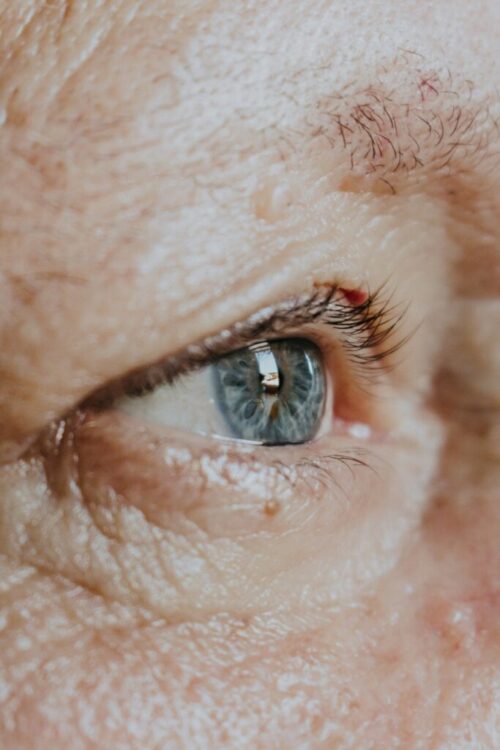Understanding Glaucoma Treatment:
Should I Take My Glaucoma Eye Drops at Night?
Glaucoma is a leading cause of irreversible vision loss worldwide, but with proper treatment, its progression can often be slowed or halted. One of the most common and effective treatments for glaucoma is the use of medicated eye drops.
If you or a loved one has been prescribed glaucoma eye drops, you may wonder why some are used at night, whether all drops follow the same schedule, and what to expect from their use. Here’s what you need to know.
Why Are Glaucoma Eye Drops Often Used at Night?
Many glaucoma eye drops, especially prostaglandin analogs (like latanoprost, bimatoprost, and travoprost), are prescribed for nighttime use.
The reason? These medications are most effective when administered in the evening. Nighttime dosing helps maximize their ability to lower intraocular pressure (IOP) during the hours when pressure can naturally rise in people with glaucoma. Applying drops at bedtime also minimizes the impact of side effects such as stinging or blurred vision, since you’ll be asleep while they occur.
Many glaucoma eye drops, especially prostaglandin analogs (like latanoprost, bimatoprost, and travoprost), are prescribed for nighttime use.
The reason? These medications are most effective when administered in the evening. Nighttime dosing helps maximize their ability to lower intraocular pressure (IOP) during the hours when pressure can naturally rise in people with glaucoma. Applying drops at bedtime also minimizes the impact of side effects such as stinging or blurred vision, since you’ll be asleep while they occur.
Are All Glaucoma Eye Drops Used at Night?
Not all glaucoma medications are meant for nighttime use. The timing depends on the type of medication:
- Prostaglandin analogs: Usually taken once daily at night.
- Beta-blockers, alpha-agonists, and carbonic anhydrase inhibitors: May be prescribed for use once or several times throughout the day.
Your eye doctor will provide specific instructions based on the medication’s action and your individual needs. Always follow your prescribed schedule for the best results.

How Do Glaucoma Eye Drops Work?
Glaucoma eye drops lower eye pressure by either:
-
Increasing the drainage of fluid from the eye (as with prostaglandin analogs and cholinergic agents)
-
Reducing the production of fluid in the eye (as with beta-blockers, alpha-adrenergic agonists, and carbonic anhydrase inhibitors)
By controlling eye pressure, these drops help prevent further damage to the optic nerve and preserve your vision.
What Should You Know About Side Effects and Use?
Glaucoma drops can cause both local and systemic side effects:
-
Local (eye-related): Stinging, burning, redness, itching, blurred vision, changes in eyelid or iris color, increased eyelash growth, and dry eyes.
-
Systemic (whole body): Fatigue, headache, low blood pressure, slow heart rate, or breathing difficulties in some cases.
-
Preservative-related: Drops with preservatives may worsen dry eye symptoms.
Tips for Use:
-
Remove contact lenses before use and wait 15 minutes before reinserting them.
-
Report any bothersome side effects to your doctor; alternatives may be available.
- Always use as directed by your doctor.
Consistency is key: These drops don’t cure glaucoma or reverse vision loss, but regular use helps prevent further damage.
The Importance of Regular Eye Exams for Glaucoma Patients
Regular eye exams are crucial for anyone with glaucoma or at risk for this eye disease. Glaucoma encompasses different types, but all can cause damage to the optic nerve—often from increased pressure inside the eye.
Because glaucoma usually has no early symptoms, routine exams are the best way to monitor ocular health and catch any changes early. During these visits, your eye doctor will check your eye pressure, optic nerve, and vision, and may adjust your dosing regimen if needed. Early detection and consistent monitoring can slow the progression of glaucoma and help preserve your sight.
If you have risk factors like family history, diabetes, or older age, more frequent exams may be recommended. Staying on top of regular eye exams is one of the most important steps you can take to protect your vision and overall eye health.
Eye exams at Poudre Valley Eyecare
Remember: Glaucoma eye drops are a cornerstone of treatment and, when used as prescribed, can help protect your sight for years to come. If you have questions or concerns, don’t hesitate to reach out to your eye care provider.
At Poudre Valley Eye Care, we’re committed to helping you manage chronic eye diseases like glaucoma with personalized, expert care. Our experienced team uses the latest technology to monitor your eye health, tailor your treatment plan, and answer all your questions about medications and dosing regimens. Protecting your vision is our top priority—whether you need routine exams, ongoing management, or advice on maintaining healthy eyes.
Ready to take charge of your eye health? Call us today to schedule your appointment. We’re here to help you see your best for years to come!
FAQs
-
Why do some eye drops need to be used at night?
Certain drops, especially prostaglandin analogs, work best at night and have fewer bothersome side effects when used before bed.
-
Can I take all my glaucoma drops at night?
-
Are side effects common?
-
Can glaucoma drops cure my condition?
-
What if I have trouble using my drops?
-
What vitamin fights glaucoma?
-
Who is at risk for developing glaucoma?
-
How can I tell if I have glaucoma?
-
What treatments are available for glaucoma?
-
Why is glaucoma called the “silent thief of sight”?
-
What are the early warning signs of glaucoma?
-
Can lifestyle changes help manage glaucoma?
-
What happens if glaucoma is left untreated?
Dr. Eric Torgerson
Owner at Poudre Valley Eyecare
Dr. Eric Torgerson is the owner of Poudre Valley Eyecare, and has been recognized for his contributions to optometry and his commitment to community health through various roles and accolades within the Northern Colorado Optometric Society and the Colorado Optometric Association.
Why Choose Us?
Our advanced technology and individualized care deliver results for patients of all ages. Our routine exams allow us to spot changes in your vision and allow us to treat those changes early. We have a comprehensive understanding of eye care, which means we can treat a wide range of conditions and chronic diseases. Our in-depth routine exams and customized treatment plans set us apart from the rest.


Please note: None of the above should be considered medical advice. If you’re having any concerns about your vision, please reach out to us immediately or see your primary care provider.



